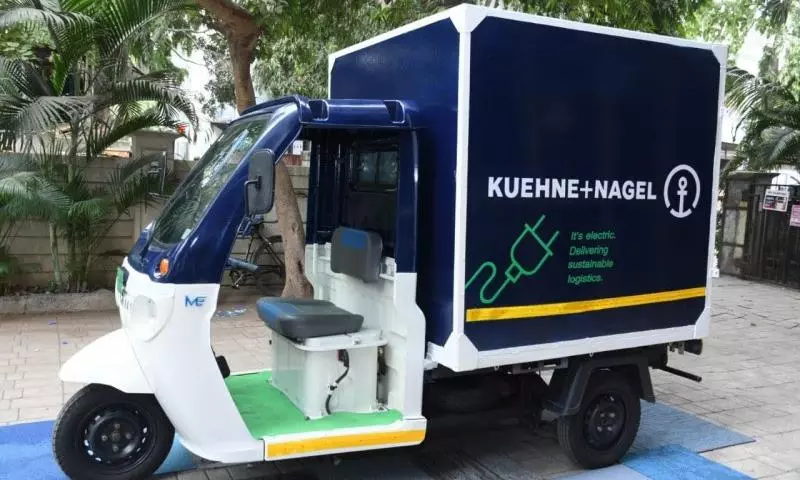Kuehne+Nagel introduces EVs for transfers in Mumbai
Use of EVs expected to result in reduction of 24.7 tonnes vehicular CO2 emissions each year

Kuehne+Nagel announced the launch of electric vehicle service for airport transfers in Mumbai.
"With this service, Kuehne+Nagel aims to switch to electric vehicles in a phased manner to reduce its carbon footprint and progress towards a sustainable future and Greener India," according to an official statement.
Marcel Fujike, SVP, Global Head Products & Services Air Logistics, Kuehne+Nagel, says: "As an environmentally and socially responsible organisation, Kuehne+Nagel is proud to use EVs in India for its airport transfers to offer green logistics solutions and reduce carbon emissions. Our customers have benefited from the global availability of Sustainable Aviation Fuel (SAF) since last year, and we continue to develop sustainable solutions for a fully carbon neutral transport journey. The introduction of EV airport transfer is the next phase in our transition to low-carbon, door-to-door air transportation, with more sustainable services to follow."
Coen Van Der Maarel, Managing Director - India, Sri Lanka and Maldives, Kuehne+Nagel, added: "Today the transportation of goods is a major contributor to carbon emissions. Fully electric vehicles have zero tailpipe emissions but even when electricity production is taken into account, petrol or diesel vehicles emit almost three times more carbon dioxide than the average EV. Using EVs will not only reduce carbon footprint but will also offer substantial operating cost savings over comparable, conventional, gasoline-fueled vehicles, allowing us to contribute significantly to the sustainability cause."
The Indian-made electric vehicle Mahindra Treo Zor will shuttle air cargo between Chhatrapati Shivaji Maharaj International Airport and Kuehne+Nagel's Mumbai Airport warehouse. The use of the EVs is expected to result in a reduction of 24.7 tonnes vehicular CO2 emissions each year, reducing the company's overall carbon footprint.



